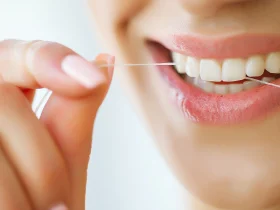In the world of dental care, nutrition often takes a back seat. Yet, it plays a critical role in keeping your teeth healthy and strong. As a patient seeking insight from a Santa Rosa dentist, understanding the connection between what you eat and your oral health is crucial. Good nutrition doesn’t just support your body; it strengthens your teeth and gums. Calcium-rich foods keep your teeth strong. Vitamin C helps your gums stay healthy. Additionally, reducing sugar can prevent cavities. Focusing on nutrition complements your regular dental visits, ensuring comprehensive care. You can think of nutrition as the unseen guardian of your oral health. By choosing the right foods, you protect your smile and save on possible future treatments. So, next time you think about your dental health, remember: what you eat matters. Embrace good nutrition as a key partner in your dental care routine.
Understanding the Basics of Dental Nutrition
The food you eat plays a key role in your dental health. While brushing and flossing are essential, they are not enough on their own. A well-rounded diet can prevent issues like cavities, gum disease, and tooth loss. Calcium and phosphate-rich foods replenish minerals that your teeth lose when exposed to acids. Sources include dairy products, nuts, and leafy greens. These foods help repair tooth enamel and keep cavities at bay.
The Role of Vitamins in Dental Health
Vitamins are essential for maintaining a healthy mouth. Vitamin D helps your body absorb calcium better. Sunlight and fortified foods are great sources. Vitamin C is crucial for gum health. It promotes collagen production, which is vital for strong gums. A diet lacking in Vitamin C can lead to bleeding gums and gum disease. You can get Vitamin C from citrus fruits, strawberries, and bell peppers.
Impact of Sugary Foods and Drinks
Sugar is one of the leading causes of dental decay. Bacteria in your mouth feed on sugar, producing acids that wear down your tooth enamel. This can lead to cavities and other serious dental issues. It’s important to limit sugary snacks and beverages. If you indulge, rinse your mouth with water afterward. This simple action can help reduce sugar’s harm.
Choosing the Right Foods
To make better food choices, focus on variety. A balanced diet with fruits, vegetables, proteins, and whole grains supports not just your teeth, but your entire body. Consider the following table that highlights foods beneficial to dental health:
| Food Group | Benefits | Examples |
|---|---|---|
| Dairy | Rich in calcium and phosphate | Milk, cheese, yogurt |
| Fruits | High in fiber, vitamins | Apples, pears, berries |
| Vegetables | High in fiber, water | Carrots, celery, leafy greens |
| Proteins | Rich in phosphorus, vitamins | Lean meats, fish, eggs |
Water: The Unsung Hero
Water is often overlooked, yet it is essential for maintaining dental health. It helps rinse away food particles and bacteria. Fluoridated water is especially beneficial. Fluoride strengthens teeth and helps prevent decay. Drinking water throughout the day can help you maintain a clean mouth.
Bringing It All Together
Nutritional awareness is key to dental health. A well-balanced diet, rich in essential nutrients, complements your dental care routine. Choose foods that support your teeth and gums while avoiding those that can cause harm. For more information on dental health and nutrition, visit the CDC’s Oral Health Division and the American Dental Association’s Nutrition Page. By understanding and implementing these nutritional principles, you ensure that your smile remains healthy and bright for years to come. Prioritize nutrition as part of your oral care strategy and watch your efforts pay off through a healthier mouth and a brighter, happier smile.










